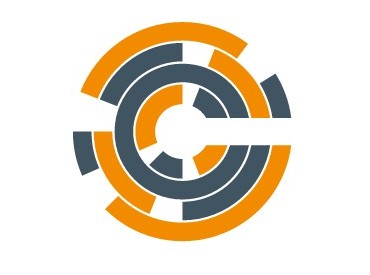Opscode Becomes Chef, Fills Warchest for Puppet Battle

The battle between Puppet Labs and Opscode for the future of systems management is heating up. Opscode has received a big infusion of cash from venture capital investors. At the same time, Opscode is gearing up its sales and engineering teams, adding to its management team, and changing its company name to Chef Software.
The $32 million in funding is Chef Software's fourth round, bringing the total of funds raised to date to $63 million. Scale Venture Partners led the Series D round and prior investors Amplify Partners, Battery Ventures, DFJ, Citi Venture, and Ignition Partners all put in money this fourth time around. This is a big chunk of change, and on par with the $30 million that VMware put into Puppet Labs back in January 2013 during its fourth round of investment. Cisco Systems and a handful of big VCs have kicked in $45.5 million in total to Puppet Labs in the past four years.
Generally speaking, companies either get acquired or go public after they have four or five rounds. It is hard to say what valuations either Chef Software or Puppet Labs have, but one thing is for certain. The longer they wait, the larger their businesses and installed bases grow and the higher that valuation flies, whether they go public or get acquired.
"This year was the beginning of enterprise adoption for Chef," says Jay Wampold, director of marketing at Chef Software. This is true because enterprise IT shops are looking with a certain amount of envy at what the Internet giants can do with their infrastructure.
"If you look at where IT innovation has come from in the last decade, you have to look at Google, Facebook, and Amazon, who have figured out how to leverage large-scale compute to rapidly deliver goods and services," Wampold continues. "These are businesses that were built from the ground up on code. They are really code delivery engines that are shipping software to production hundreds of times a day. Because of their success, they have changed IT behavior and expectations. IT has traditionally been a back office support function, but is now becoming the front office means of engaging and serving customers. Enterprises need to become code delivery engines."
Wampold tells EnterpriseTech that revenues for the company were up 250 percent year-on-year in the third quarter ended in September. Chef Software is privately held so it doesn't divulge the actual revenue amount. The number of new paying customers for its Chef tools rose by 350 percent in the nine months ending in September, and significantly about 60 percent of those customers came from Fortune 1000 accounts. Wampold says that Chef Software has well over 500 paying customers now, and tens of thousands more are using its free and open source versions of Chef to create templates to manage their IT gear and applications.
Chef Software has 100 employees today, and the plan is to double in size by this time next year. Wampold says that the company will double its sales team and more than double its engineering team with the cash infusion. One of the target areas for development in 2014 will be extensions to Chef to make it an integral part of continuous software delivery, something that Chef has been doing as part of custom consulting engagements to date but which will be productized around the middle of next year.
All of the news about Chef Software comes immediately after last Thursday's announcement that Mitch Hill, who had been CEO at Opscode for the past two years, had passed away on Wednesday after a battle with cancer. Hill stepped down from the CEO role during the summer and Barry Crist, who was an executive in residence at Ignition Partners and who has had engineering and management roles at Apple, Mercury Interactive (now part of Hewlett-Packard), and Likewise, has been filling in since then. Crist was formally made CEO at Chef Software on December 9.
Other executive changes announced today include the appointment of Curt Anderson as CFO. Anderson was CFO for Microsoft's Manufacturing and Supply Chain Division, which among other things builds its Xbox and Surface hardware, and was the CFO for its Server and Tools Division prior to that. Tom Murphy has joined Chef Software to be its vice president of services after having similar roles at Apptio and Mercury Interactive. Tucker Callaway, who was vice president of Americas at CA Technologies, is now vice president of enterprise at Chef Software; he had similar roles at HP Software and Mercury Interactive.
If you are sensing a theme here, your sense is correct. Not only is Chef trying to topple the old guard in system management – BMC, CA, HP, and IBM – but it is using executives from those companies to help do it.










